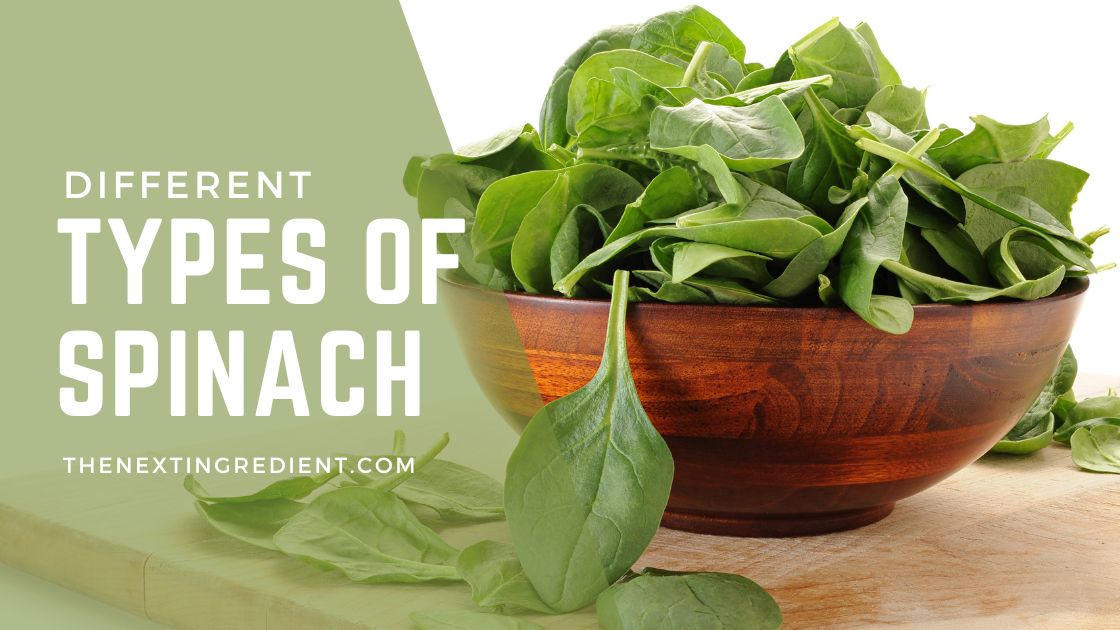How many Types Of Spinach are there? Spinach is one of those veggies you can not miss when doing your market shopping; there are many different ways to cook it, but did you know there’s more than one type! That’s right, there are actually different types of spinach, and here we’ll tell you all about them.
Spinach can be sautéed, broiled, baked, boiled, and spiced correctly. It can be simply delicious in all its presentations; the best part about spinach? It is super good for your body because it has many health benefits. But you probably already knew that; however, not many people know that there are over ten different types!
If you are a fan of this yummy and super-healthy vegetable and enjoy eating and cooking it, you are in the right place. Get your spinach game strong and learn the different types of it so you can make the most out of your spinach at home.
Different Types of Spinach
Curly-leaf Spinach, also known as Savoy spinach
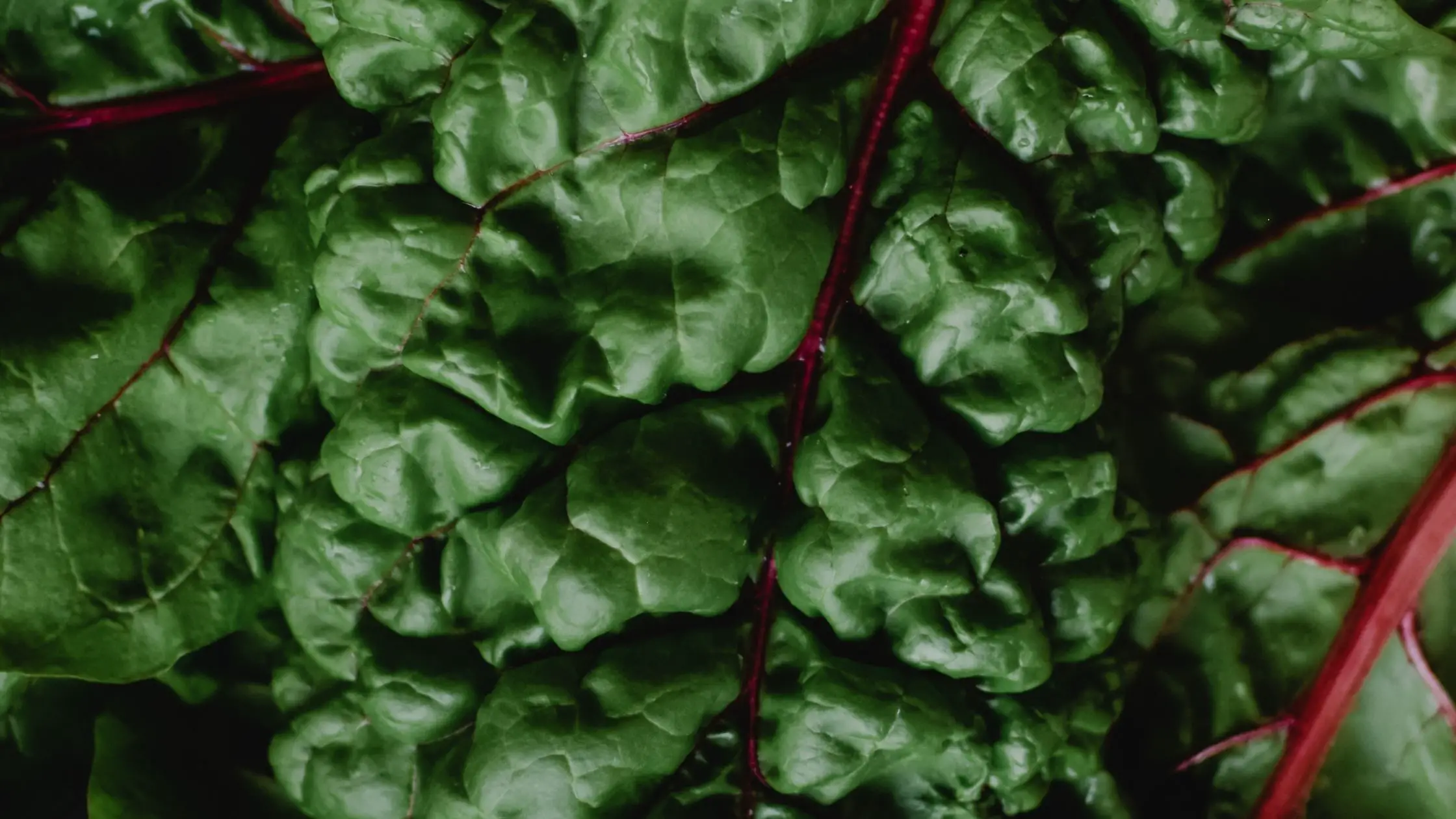
As the name indicates, this spinach has curly leaves and goes by Savoy spinach or Spinacia oleracea.
Often used in salads, this spinach has a crunchy texture and a unique bitter flavor, so combining it with other veggies or nuts, beef, onions, garlic, or poultry is always a good idea. Vegans usually enjoy this meaty flavor spinach in stews, soups, lasagna, and casseroles.
Savoy has four variations:
- Bloomsdale Spinach: Bloomsdale retains its texture after being cooked, making it a popular option; it has a nutty flavor that makes it ideal for pasta dishes. Farmers also love this type because it can take a lot of heat.
- Regiment Spinach: This variety can grow in less than 40 days; it offers thick, arrowhead leaves.
- Curly-leaf spinach isn’t for every salad: Scientists say that little curves and gaps in the leaves can host viruses that upset the stomach, so it is always recommended to cook it and not use it in salads.
- Semi-Savoy Spinach: this type presents a leaf that is not as curly, so it has fewer nooks to clean.
Semi-savoy also comes in different varieties:
- Catalina Spinach: Also goes by baby leaf spinach (used for making ramen); this offers the same crunch of Savoy varieties but with smaller leaves making it great in salads; it needs cool weather and about 40 days to mature.
- Indian Summer Spinach: The leaves in this type can be up to one foot long, and it needs you to keep an eye on watering and the pH of soil.
- Teton Spinach: This type offers soft, crunchy, and delicious dark green leaves. It grows right, so it makes it easy to harvest.
Smooth-Leafed Spinach
This is most likely the type of spinach you get in your bagged salad mix; it is what most people get when going to the market. It is popular because it is easy to clean since its smooth leaf doesn’t host viruses or bacteria.
It is a popular addition in soups, frittatas, omelets, stews, and even casseroles though it is not as crunchy in salads.
Space Spinach
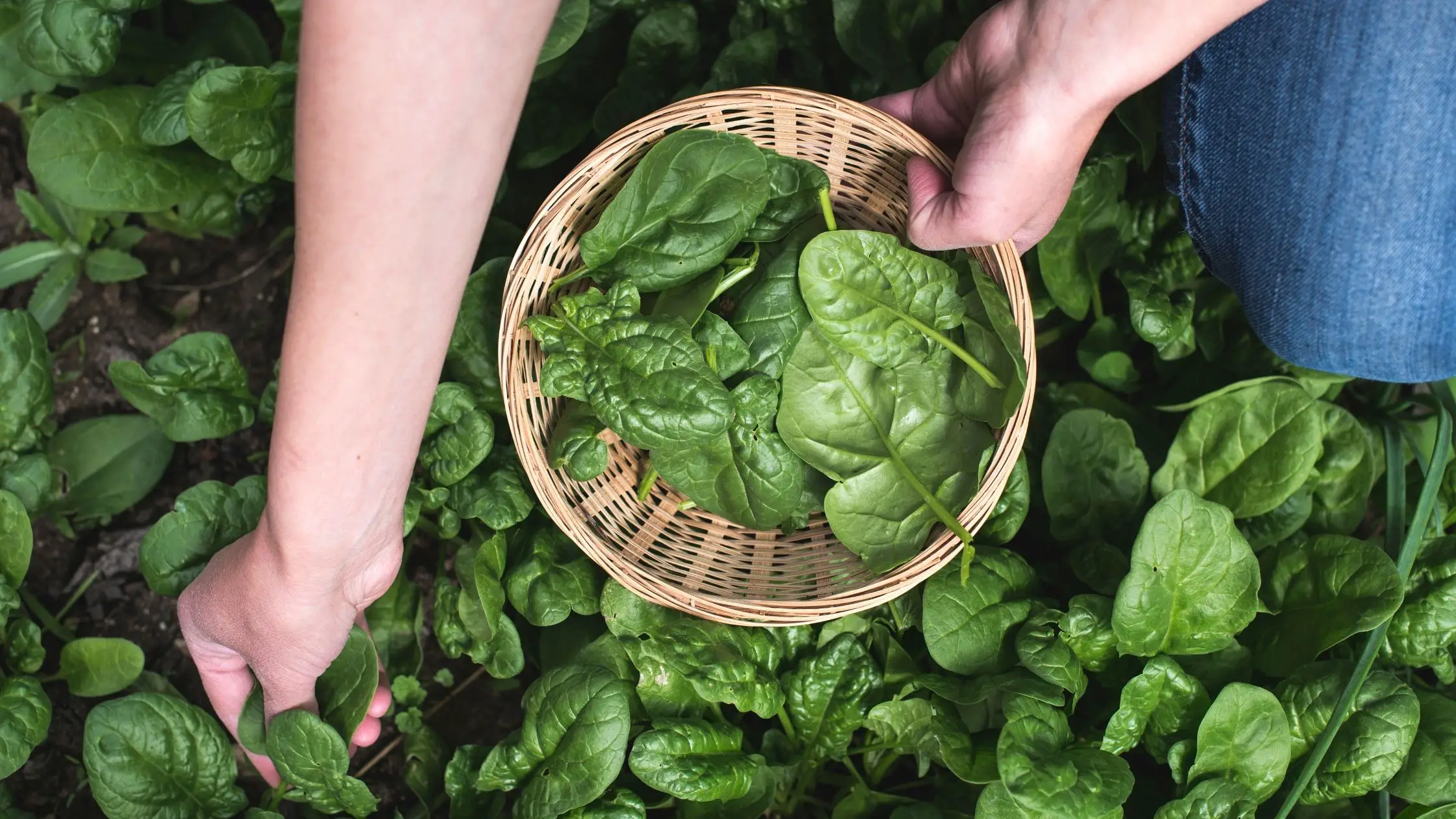
This type of spinach hails from California and offers an unsoiled crop since the stems hold the leaves over wet ground. Its tasty flavor is often compared to that of baby spinach.
Red Cardinal Spinach
This type of spinach is recognized due to its red veins and red stems. It grows amazingly quickly in just about three weeks in controlled conditions.
It blooms on rich soil, regular watering, 45 and 75 degrees Fahrenheit temperatures, six hours of sun daily, etc.
“Spinach” That Isn’t Really Spinach
When spinach is not around, which is usually over the summer when it is pretty impractical to grow, some yummy greens can very well substitute your spinach needs.
These veggies pretty much look like spinach, and the best part, they taste like spinach too! However, these aren’t the real deal.
Malabar Spinach
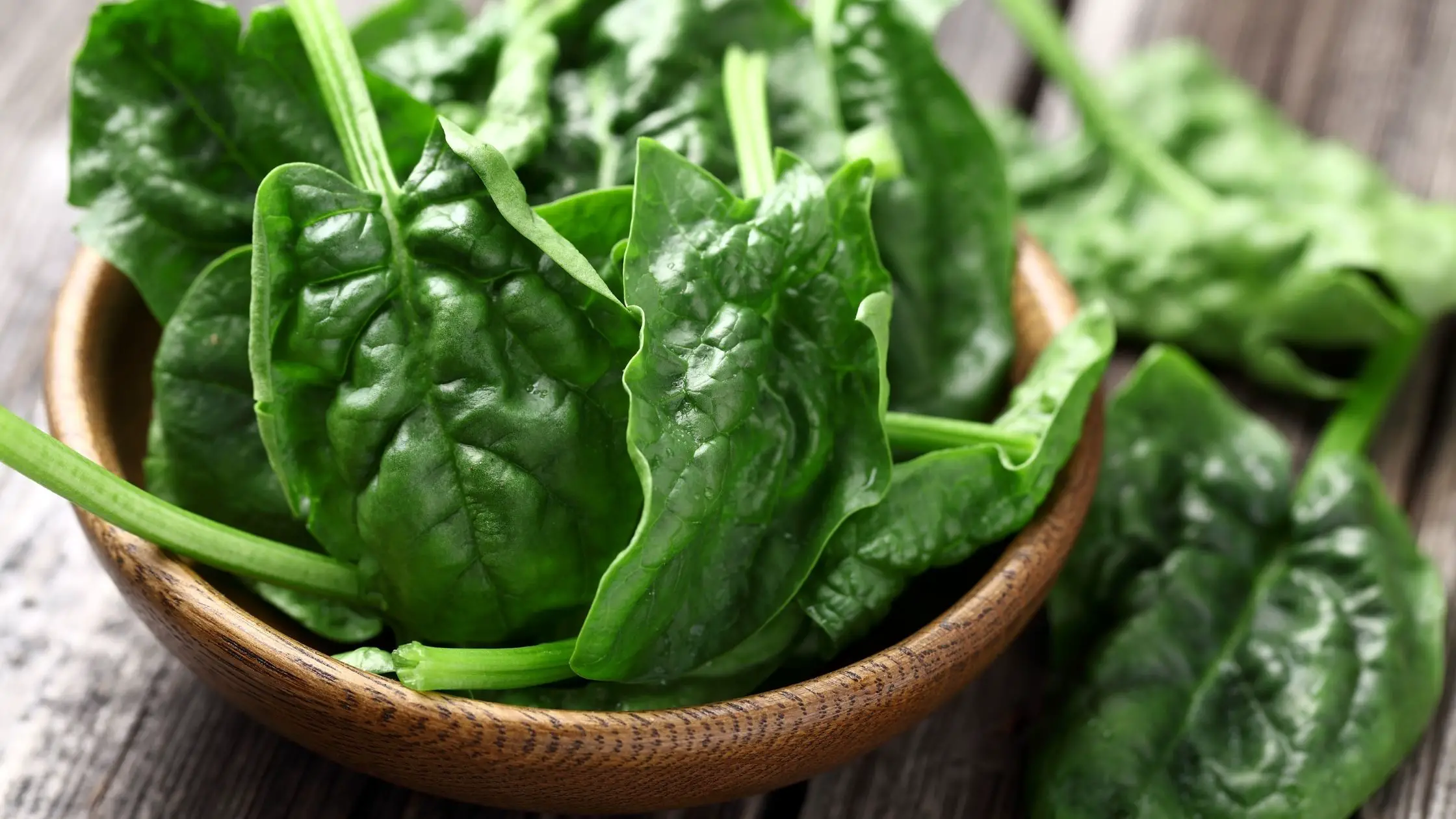
Malabar is the spinach of the summer, is typically grown in the Southern United States, and is popular because it can withstand harsh climate conditions. It belongs to the Cloves family -who hails from Asia, and its white or red stems produce long vines.
Mountain Spinach, also known as Orache
This spinach is not really spinach but looks like it comes in varieties of white, green, and pink leaves. Popular for its ability to take up the heat and its salty taste. It goes well with pasta and salads.
New Zealand Spinach, also known as Tegragonia
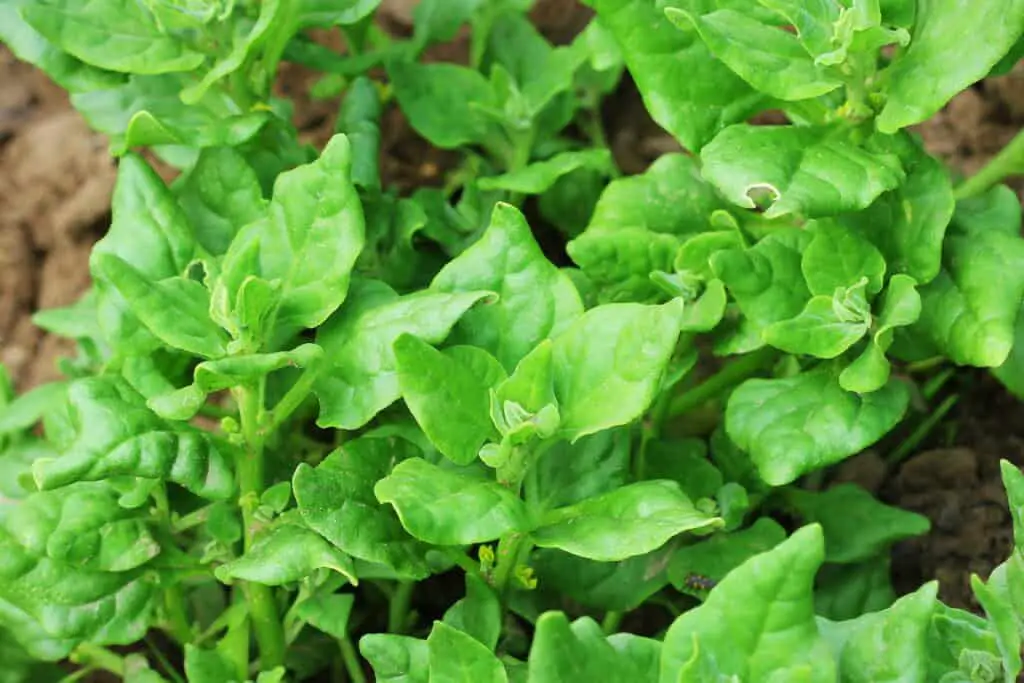
This type of spinach receives many names, including Botany Bay spinach, Cook’s cabbage, sea spinach, and kokihi. You can consume New Zealand spinach-like any other type, but its blue flowers make it ideal as a decorative plant.
Benefits of All Types of Spinach in your Diet
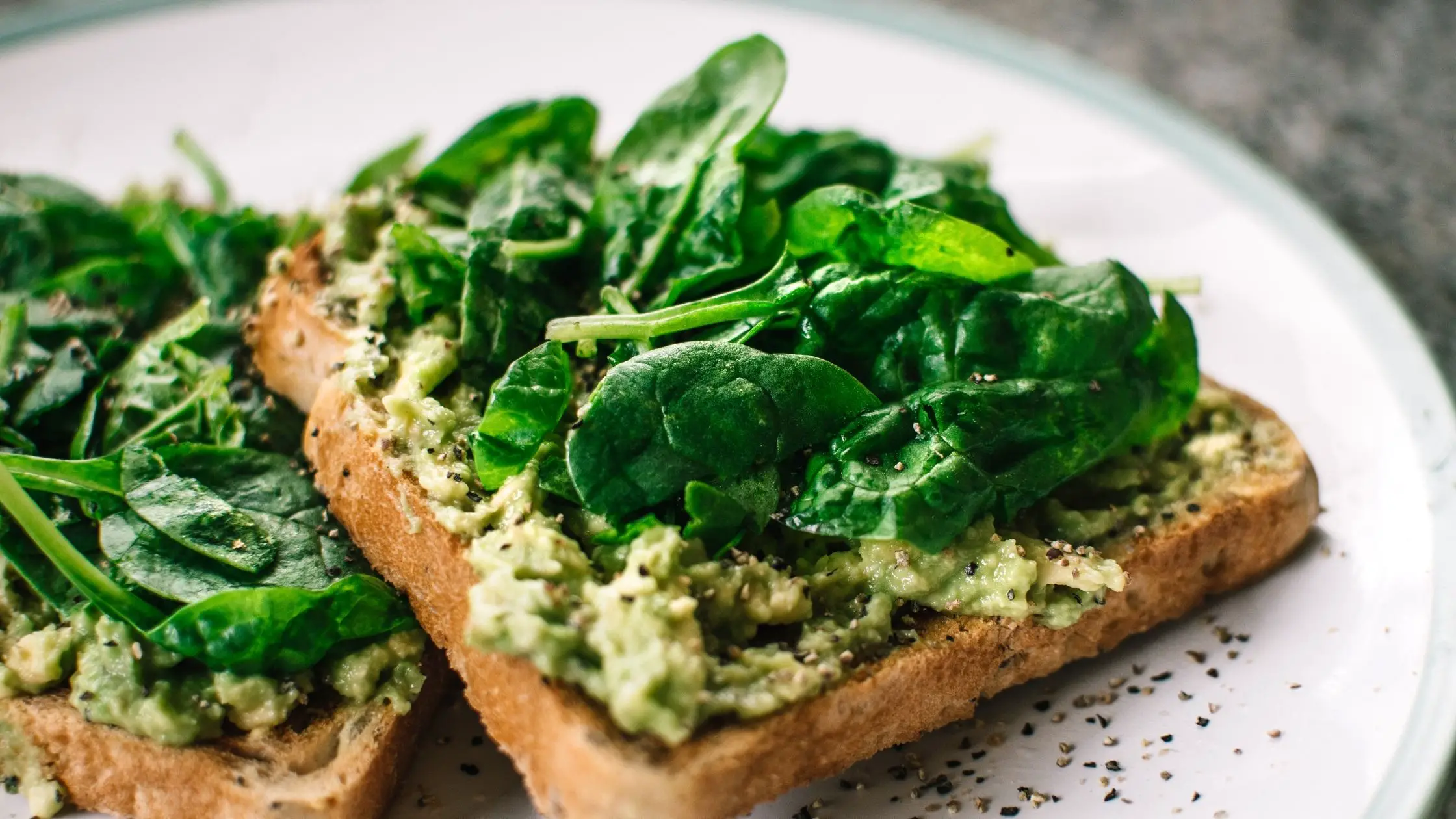
Spinach Can Help You Power Through A Workout
Ever wondered what to eat before your workout so you can last longer before you feel that ‘burn’?
Did you know that spinach can give you the energy you need for your workout!
Your body uses the nitrates in spinach to make nitric oxide, opening up your arteries, enabling more blood flow and better performance when working out hard.
Spinach Can Give You Healthier Skin
Bet you never thought that spinach could help your skin look and feel healthier. Key compounds in spinach promote the growth of wholesome skin.
Consuming spinach will prompt your natural skin to show thanks to its skin cell turnover effect. Plus, it will also help you shield yourself from overexposure to the sun.
Spinach Can Help You Curb Your Food Cravings
Numerous scientific studies have proven that spinach is also effective as a suppressant of hunger. After participants in a study received spinach during breakfast, lunch, and dinner, researchers found that this wonderful vegetable extinguished cravings, controlling appetite. In addition, spinach prevented low blood sugar levels, so participants weren’t tempted to consume sugary sweets!
Spinach Nutritional Facts Chart
You can either enjoy your spinach cooked or raw; what’s important is that you get multiple benefits when incorporating it into your diet.
Spinach contains Vitamin A, C, and K; it also has Folates and minerals such as Iron, Manganese, Calcium, and Copper. Every 100 G of spinach provides your body with 23Kcal of Energy, 3.63 g of Carbohydrates, 2.86 g of protein, and only 0.39 g of Fat.
How To Keep Spinach Fresh?
Keep your healthy leafy spinach fresh for days by properly storing it. What you need to keep in mind is that you need to avoid moisture.
Like any other leafy vegetable, Spinach already contains a lot of water, so when storing it to keep it fresh, you want to keep moisture as minimal as possible. Dry should be your focus.
Another thing to remember is that your spinach’s freshness relies on how fresh it is when you get it in the first place.
Spinach definitely belongs inside your fridge. However, you need to put in some effort, but if well-executed, you can have fresh spinach for up to a week!
How To Store All Types Spinach, So It Stays Fresh For Longer?
All you need is an airtight container and a couple of paper towels to store your spinach. This method of storing will ensure you have fresh spinach for about 5 to seven days and, in some cases, a bit longer. Just follow the steps:
- Wash the spinach as you normally do
- Using a salad spinner, dry your spinach
- Line your container’s bottom with a dry paper towel; the paper towel will absorb extra moisture so the spinach stays as dry as possible, slowing down the rotting process.
- Remove any bad leaves.
- Cover the container and place it in the fridge
Can You Freeze Spinach?
You can definitely freeze spinach and have it on hand for months! Following these steps, you’ll have spinach for about 12 to 14 months.
- Wash the spinach as you normally do and tear larger leaves into smaller pieces.
- Blanch spinach leaves in boiling water or steam for two minutes.
- Soak in ice water for a couple of minutes
- Dry your spinach using a salad spinner or a thick towel
- Transfer the leaves into freezer bags and press out as much air as possible before sealing them.
- Place your bags in the freezer.
Another method of freezing spinach is to puree it and freeze it in an ice cube tray. Once completely frozen, remove the spinach cubes and transfer them to a freezer bag. These are perfect for smoothies or soups.
What To Do With Spinach Before It Goes Bad?
If spinach becomes soggy inside the fridge, then you should get rid of it. Spinach that is going bad is easy to spot; its bright green color changes, and the leaves become yellow and dark and will have a bad smell.
Please don’t allow your spinach to go to waste; it is such a versatile vegetable that can be incorporated into so many recipes for a rise of green nourishment. Check out some of our favorite dishes containing spinach.

